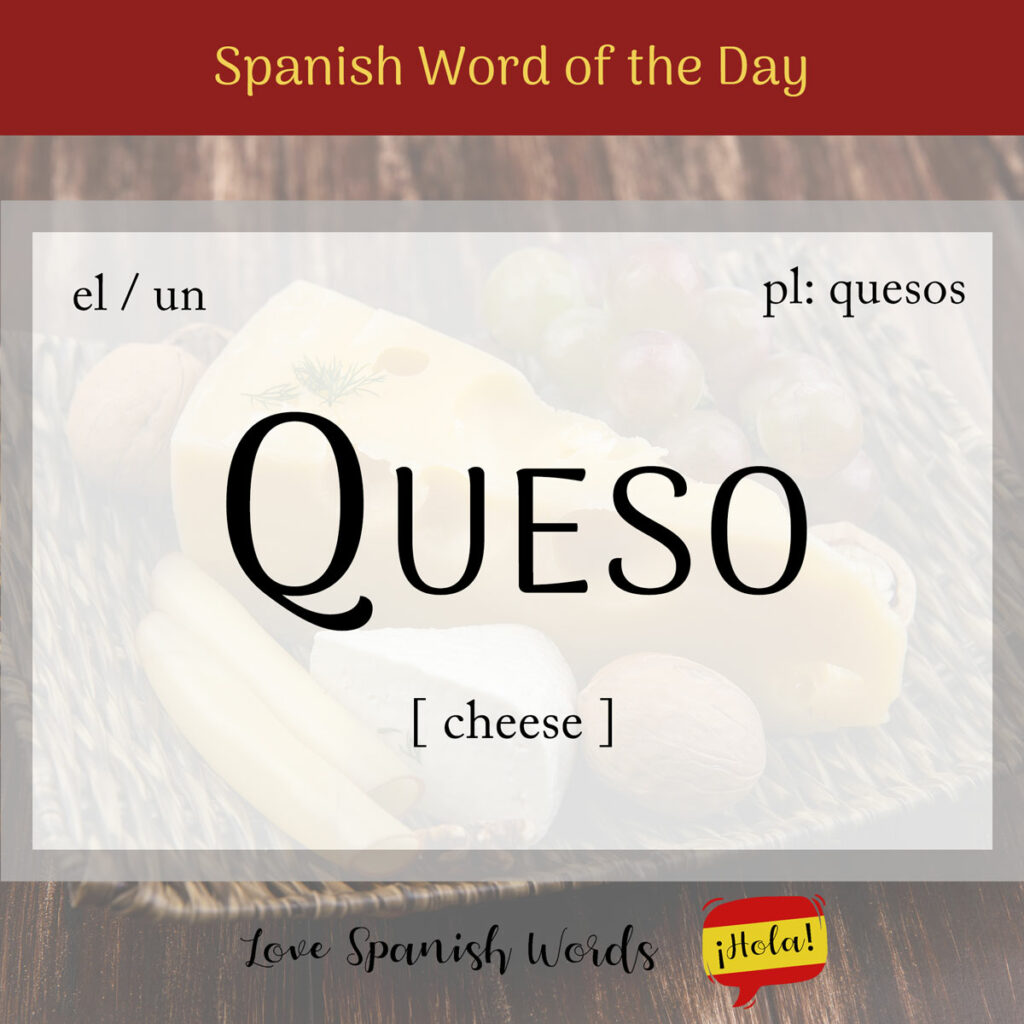If I could only eat one food for the rest of my life, it would probably be cheese, known as queso in Spanish. Queso derives from the Old Spanish queso, which in turn comes from the Latin cāseus.
Latin American pronunciation
European pronunciation

Queso is a masculine noun, so it takes the following definite and indefinite articles:
- el queso = the cheese
- los quesos = the cheeses
- un queso = a cheese
- unos quesos = some cheeses
¡Podría comer queso todos los días!
I could eat cheese every day!
Here is some cheese terminology that might come in handy during your trips to the supermarket:
- bola de queso = cheese ball
- queso crema / queso de nata = cream cheese
- queso fresco = cottage cheese
- queso duro = hard cheese
- queso rallado = grated cheese
- queso fundido = processed cheese
- queso de untar = cheese spread
- queso azul = blue cheese
- queso añejo / curado = mature cheese
- queso tierno = soft cheese
- queso de oveja = sheep milk cheese
- queso de vaca = cow milk cheese
Spain is well-known for its delicious cheeses, with some of the most famous being manchego sheep’s milk cheese, mentioned in the novel Don Quijote, the wonderful blue cabrales cheese, and ibérico cheese.
In Colombia, locals can be seen enjoying queso paipa, queso pera and queso siete cueros, the last of which is often eaten with chocolate caliente (hot chocolate)!
The most popular cheeses in Mexico are queso fresco, queso Oaxaqueño / queso Oaxaca, which is used for quesadillas, and queso cotija used in the popular esquítes (corn in a cup).

Now let’s take a quick tour of the figurative meanings associated with queso!
In Mexico, queso can also figuratively refer to a type of low-cost drug that mixes acetaminophen with a small amount of heroin.
In Spain, on the other hand, it can denote someone who is physically or sexually attractive. A common idiomatic expression embodying this figurative meaning of queso is estar como un queso (literally “to be like a cheese”). Some possible English translations include hotty, dreamboat or dishy.
Juan es como un queso.
Juan is a dreamboat.

Have you ever encountered the slang phrase Y la queso…? Although you might be tempted to translate it as And the cheese…, the expression is actually an abbreviation of Y la que soporte…, used when someone has to put up with something or someone.
Useful idiomatic expressions featuring queso
Dársela a alguien con queso
Literal translation: give it to someone with cheese
English meaning: to deceive someone / to pull the wool over someone’s eyes
Quedarse sin el pan y sin el queso
Literal translation: to run out of bread and cheese
English meaning: to end up empty-handed

